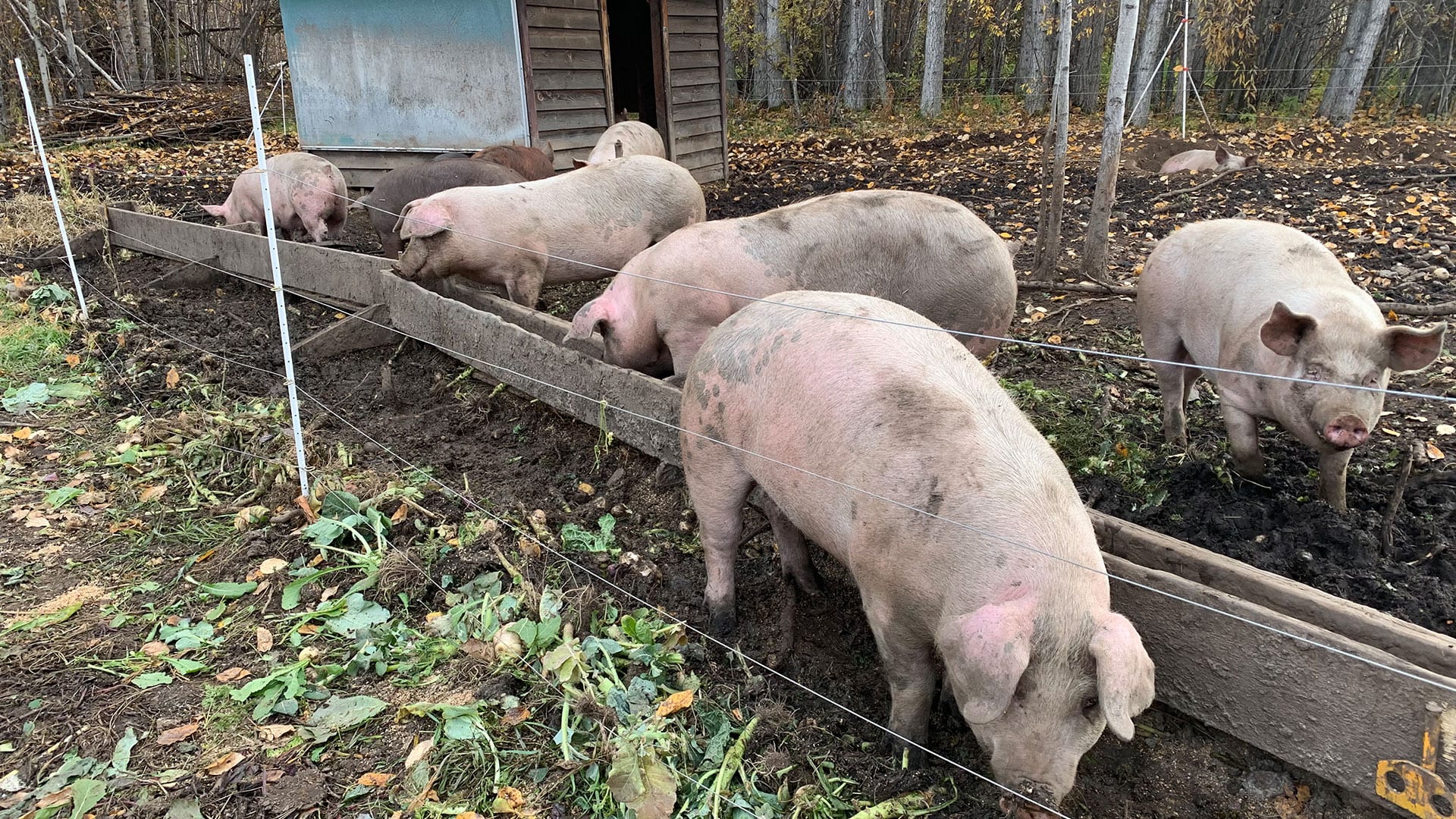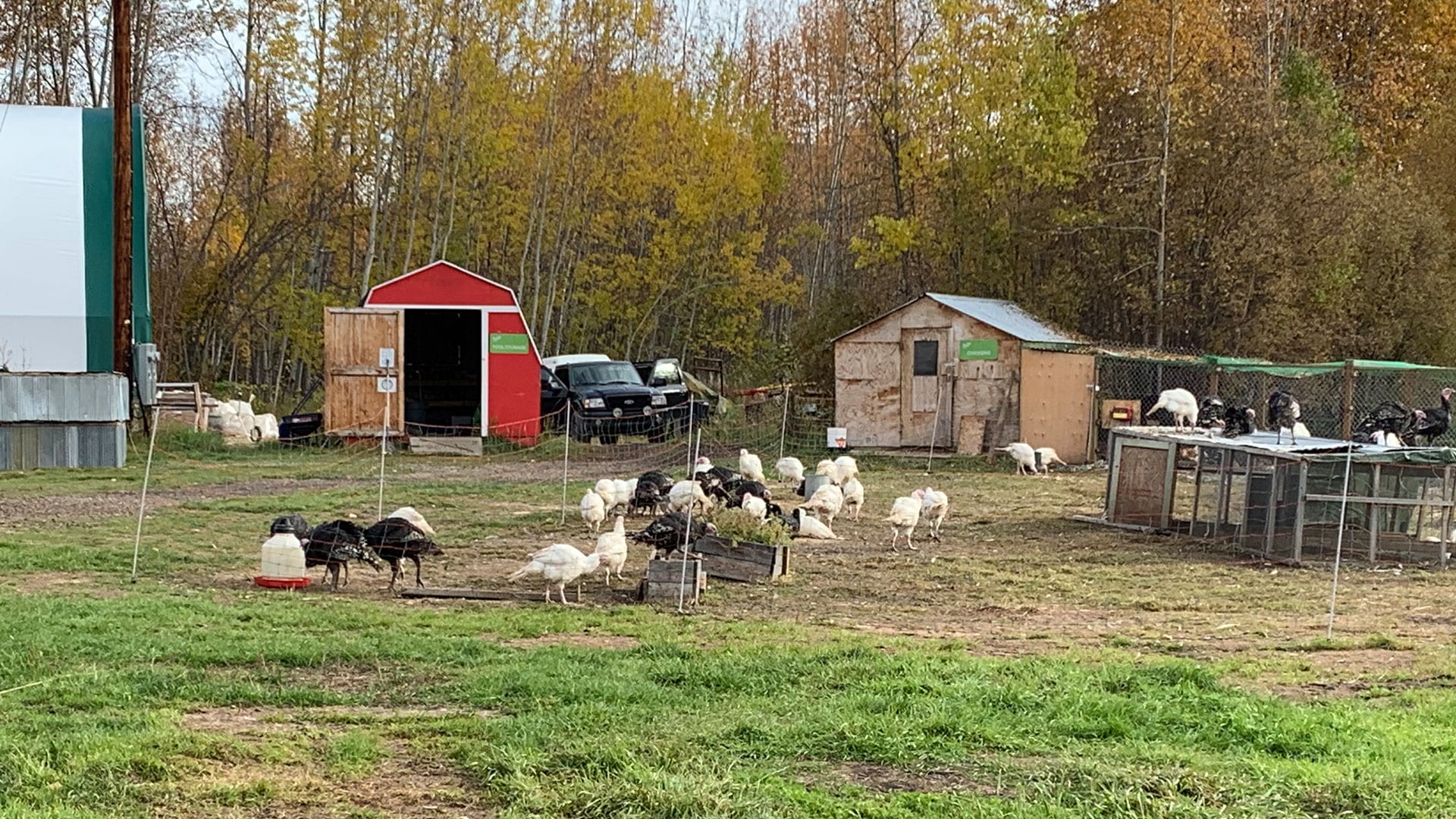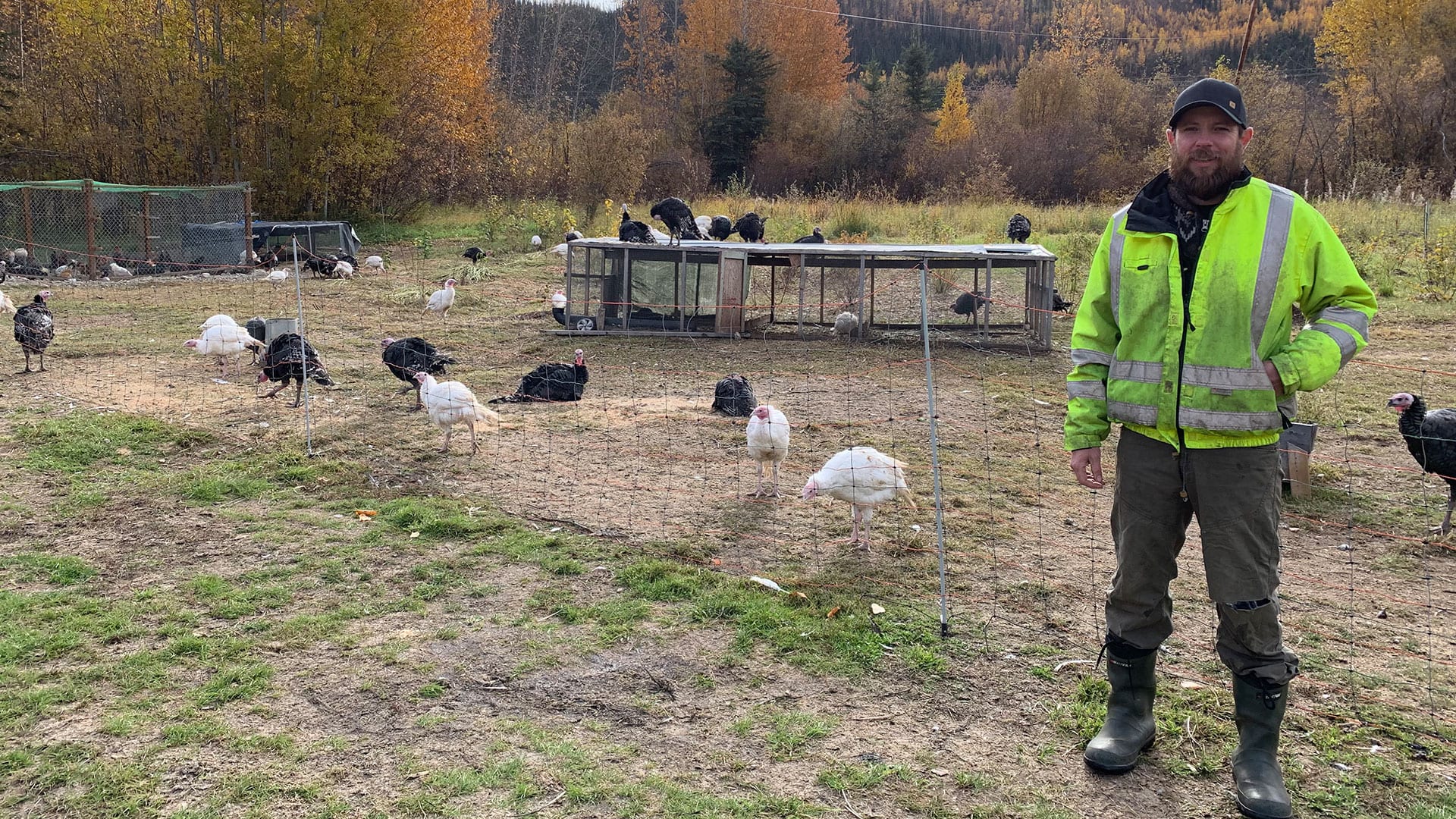Don’t let appearances deceive you, while the Tr’ondëk Hwëch’in Teaching and Working Farm in Dawson City, Yukon may look like a small agricultural farm, it’s made some big achievements in northern food security.
“It sort of changes people’s dietary habits, and shopping habits,” Farm manager Derrick Hastings told APTN News.
More commonly known as the TH farm, it’s the only First Nations working farm north of the 60th parallel in Canada.
It grows vegetables and produces meat and eggs for Tr’ondëk Hwëch’in First Nations and the surrounding community through sustainable methods.

For 10 weeks of the year the farm produces 70 delivery boxes of food for Dawson City residents, as well as 75 free boxes twice a year for Tr’ondëk Hwëch’in citizens through a nutrition program funded by Jordan’s Principle.
“They get this package and they open it up and they start to make meals based on what’s fresh,” said Hastings.
Tr’ondëk Hwëch’in First Nation resident Ryan Peterson has been getting the delivery boxes for three years.
He said with access to fresh food often limited and expensive in northern towns like Dawson City, the delivery boxes are a good way to provide additional fresh, healthy food.
“The kids always enjoy the food and I’m a good cook, too, so that helps,” he said. “It’s really good, and it’s all natural.”
Extended season greenhouse in the works
Dawson City possesses exceptional growing conditions during the spring and summer growing season because of the nearby glaciers. However, Hastings said winter growing continues to be a challenge.
In order to grow food year round, the farm will soon build a 278 square metre energy efficient cold climate greenhouse, which will allow for farming for up to ten months of the year.
Some of the money for the greenhouse is coming from a $500,000 Arctic Inspiration Prize and an additional $500,000 from Crown-Indigenous Relations and Northern Affairs’ Climate Change Preparedness in the North Program.
The greenhouse has been in the design phase for the last two years, but construction is expected to begin in the spring. The greenhouse should be fully functional by next fall, and will provide wholesale vegetables, as well as teaching programs such as butchering and seed and mushroom growing.

Hastings said the greenhouse will be a source of food security in an area where food supply chains are dependent on outside methods.
“The greenhouse will provide fresh produce in the winter, which we have very little of most of the time. (Produce) comes from California, or the closest is Alberta, so the greenhouse will be unique in that way. Food security is always an issue because we’re very reliant on a truck.”
Ryan Peterson is looking forward to the additional food that will be grown in the greenhouse, and said it could be an important structure of food security, especially during unpredictable events.
“Self-reliance is a big thing, stuff like COVID-19 comes around and you’re good for food with the farming and the greenhouse.”
A farm that gives back
And there’s more to the farm than just food.
Tr’ondëk Hwëch’in citizens are encouraged to come stay at the farm for free and learn agricultural skills while earning a small income in the process.
Hastings said this is especially helpful for those struggling with housing instability and addiction, as it allows them to reconnect with tradition, save money, and eventually, re-enter the workforce.
“A farm is effective. You have people staying in their community, being productive, having hope, and being part of a team effort. And then having good food, which helps people just be more healthy in their minds and bodies.”

Eventually, programs will also be in place for Tr’ondëk Hwëch’in youth to learn life lessons through agriculture and farming.
“I see in the future this really being a way for the youth to establish themselves early in life between 12 and 18, and establish important skill sets and the understanding of agriculture and a different work ethic. (It can act as) a preventative measure to a lot of the problems facing the First Nations.”
Hastings said for many people, the TH farm is a place where many lessons can be learned well past the growing season.
“We tend to want to engage with all types of citizens and give people opportunities and allow them to gather hope from the project, a perspective that sort of lends into like a continuity, season to season, year to year.
“I think that lends to a healthier community and healthier individuals within the community that’s a bit more engaged.”










